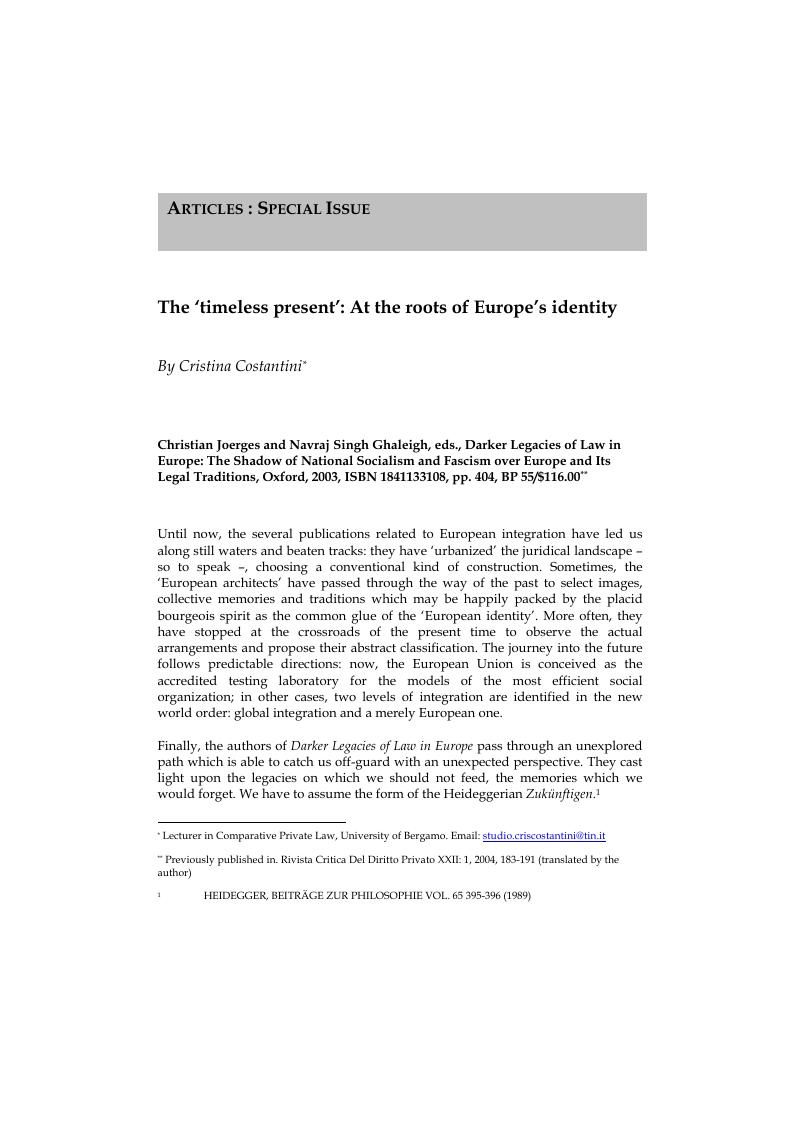No CrossRef data available.
Article contents
The ‘timeless present’: At the roots of Europe's identity
Published online by Cambridge University Press: 06 March 2019
Abstract

- Type
- Review Article
- Information
- Copyright
- Copyright © 2006 by German Law Journal GbR
References
1 HEIDEGGER, BEITRÄGE ZUR PHILOSOPHIE VOL. 65 395-396 (1989)Google Scholar
2 In recent years, there has been a revival of interest in the work of Carl Schmitt, even in the English-speaking world. Ellen Kennedy says that Schmitt offers ‘the most cogent and coherent critique of liberal institution in this century’ and that his legal and political theories ‘filled a gap in left-wing theory, supplementing the economic and social theory of Karl Marx by analyzing the condition of the liberal state under 20th century capitalism’. E. Kennedy, Carl Schmitt and the Frankfurt School, 39 TELOS 41-42 (1987); C. Mouffe, The Challenge Of Carl Schmitt (1999); D. Dyzenhaus, Legality And Legitimacy: Carl Schmitt, Hans Kelsen And Hermann Heller In Weimar (2000)Google Scholar
3 B. Bauer, Die Russische Kirche (1855)Google Scholar
4 C. Schmitt, Römischer Katholizismus Und Politische Form (1984)Google Scholar
5 C. Schmitt, Völkerrechtliche Grossraumordnung Mit Interventionsverbot Für Raumfremde Mächte. Ein Beitrag Zum Reichsbegriff Im Völkerrecht, 305 (1941)Google Scholar


